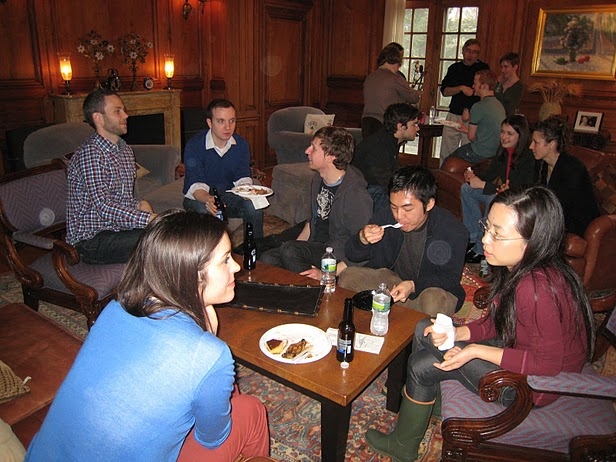For Harvard students: Class: 2–4pm Mondays (CGIS South 010, Tsai Auditorium); Section: 6–7:30pm Wednesdays (CGIS K354). For others: register here for online access (for credit or auditing).
 |
Gary King King@Harvard.edu Phone: 617-500-7570, Administrative Assistant: 617-495-9271 Office: 1737 Cambridge Street (CGIS), N313 Konstantin Kashin, Teaching Fellow kkashin@fas.harvard.edu Phone: Office: CGIS K320 | Hours: (CGIS HMDC Basement Lab) Molly Roberts, Teaching Fellow roberts8@fas.harvard.edu Phone: 617-302-6020 Office: CGIS K351 | Hours: (CGIS HMDC Basement Lab) |
For students who've taken a course in linear regression (such as Harvard's Gov2000), this course gives you the tools to learn new statistical methods or build them yourself. We focus on methods practically useful in real social science research. We aim to give you two types of skills.
 First, we discuss how to develop new approaches to research methods, data analysis, and statistical theory. More advanced statistical theory is not required when data and variables follow standard assumptions. Since this is not usually the case in most of the social sciences, we often cannot always use ready-made statistical procedures developed elsewhere and for other purposes. Once the underlying theory of inference is understood, we can easily “reinvent” known statistical solutions to accommodate social science data, or even to invent original approaches and new statistical estimators when required.
First, we discuss how to develop new approaches to research methods, data analysis, and statistical theory. More advanced statistical theory is not required when data and variables follow standard assumptions. Since this is not usually the case in most of the social sciences, we often cannot always use ready-made statistical procedures developed elsewhere and for other purposes. Once the underlying theory of inference is understood, we can easily “reinvent” known statistical solutions to accommodate social science data, or even to invent original approaches and new statistical estimators when required.
Students will learn how to read an original scholarly article describing a new statistical technique, implement it in computer code, estimate the model with relevant data, understand and interpret the results, and present and explain the results to someone unfamiliar with statistics.
Second, students will learn how to make novel substantive contributions to the scholarly literature. A substantial portion of those who complete the course publish a revised version of their class paper in a scholarly journal. For most students, this is their first professional publication. For papers from previous years, see the Gov 2001 Dataverse.
Last year, we experimented with a wide range of innovative teaching tools. This year, we'll be using a subset of those tools which worked well. Most of the course will be lecture-based, and several more collaborative approaches will be used too. For resources and tools, see the section Learning Resources.



